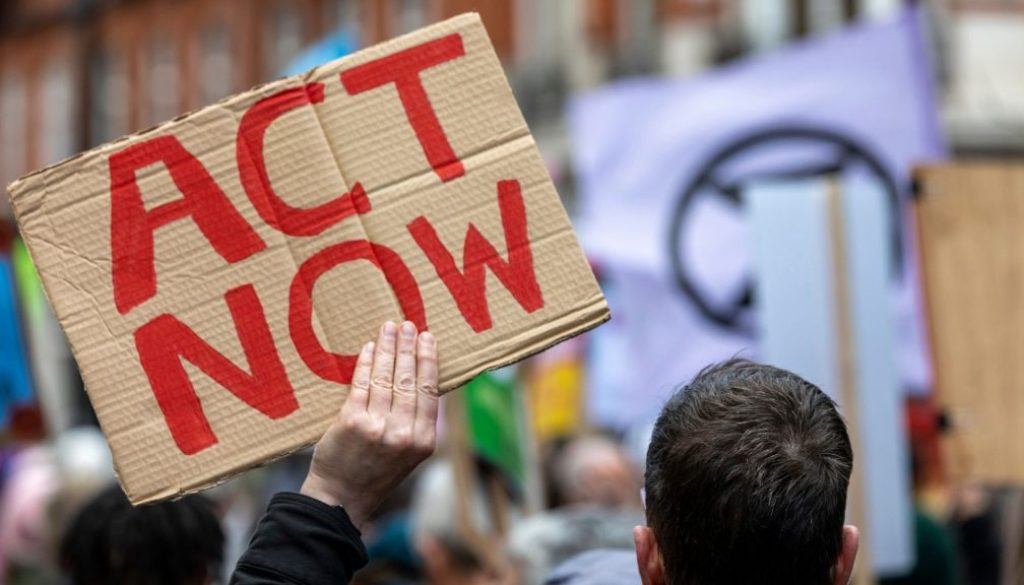Ecological Literacy
In the coming decades, humanity’s survival will depend on our ecological literacy – the ability to understand and live by the basic principles of ecology – and it must become a critical skill for policymakers, business leaders and professionals in all sectors, making it if the most important part of education at all levels
Why should we care about ecological literacy? Is there not enough to provide quality Western education to people in the Global South? Should we deprive them of the chance to develop according to our well-meaning criteria? Or is high-quality Western education not only part of the solution, but also part of the problem? This is what we want to explore next.
We are all born into an animated, living world, feeling and perceiving the interconnectedness of all creation from the very first moment of our existence. But for almost everyone in Western culture, growing up is marked by a disruption in the early years of life: we are put on the rails of a reductionist and mechanistic upbringing. In a quasi-“metamorphosis,” our natural, soulful self is transformed into a rational, mechanistic self within the Western worldview [1]. The adoption of this worldview is more an osmosis than a formal apprenticeship; it takes place largely in the subconscious. What we usually call a “paradigm” is the set of beliefs shared by virtually all members of a given culture. “A paradigm is not experienced existentially, as something believed to be true , but as something that is simply true ” [2] .
The predominant way of thinking and acting is anchored in an outdated and linear view of the world of cause and effect. It threatens life on our planet. Our behavior towards our surroundings reflects our inner awareness. Our alienation from nature leads us to poison it without thinking – or quite consciously. The poisoning of nature is a faithful reflection of the poisoning of our soul [3] . Paul Cézanne aptly described this relationship with the words “nature is within”. The ecological crisis is, above all, a spiritual crisis . And to overcome the crisis, we need ecological literacy.
What does ecological literacy mean? Life on Earth has been evolving for more than three billion years. In that time, increasingly complex ecosystems have created a resilient and sustainable network of relationships, the web of life. This network is under threat because humans are interfering with ecosystems without understanding their basic principles. Those responsible for the interventions are mainly people with quality Western education, or in the words of theologian and deep ecologist Thomas Berry, “95% of the destruction of the planet is caused by people with a Ph.D.” [4 ] .

We must relearn to understand the basic principles of ecology and live according to them. In the course of evolution, principles of organization have evolved under which the web of life has been able to thrive. Knowledge of these principles, relationships and patterns is called ecological literacy. The essence of ecological literacy is the wisdom of nature. Physicist and systems theorist Fritjof Capra pointed out the principles of ecology, which include [5] :
– all members of an ecosystem are located in a vast and complex network of relationships, the web of life
– at all levels of nature, living systems are part of other living systems, they are networks within networks
– the more diverse an ecosystem, the more resilient it will be
– life did not conquer the planet in battle, but through cooperation, partnership and networking
– no single organism can exist in isolation
– every living system is an open system
– solar energy triggers ecological cycles
– matter circulates continuously through the web of life
– one species’ waste is another species’ food, there is no net waste production
– all living systems evolve and all evolution means learning
– sustainability is not an individual property, but a property of the entire network
– an ecosystem is a flexible network, supported by complex feedback loops; no variables are maximized, all variables fluctuate around their optimal values
All living systems are characterized by the fact that they are non-linear systems. This perception contradicts the thinking of us humans in the western world. We are trained to think in linear chains of cause and effect. Systems thinking involves a shift from linear to non-linear thinking [6] .
An excellent example of how we deal with challenges that require ecological literacy, acting according to ecological criteria, is the coronavirus. The coronavirus emerged in a complex situation with many factors intertwined. The search for solutions requires a systemic and holistic approach. To analyze the situation, we need the ability to understand the basic principles of ecology. In other words, we need knowledge of ecological literacy and its implementation.
A first – surprising? – point of analysis: The coronavirus did not fall from the sky! On the contrary: the appearance of the coronavirus is the result of systematic and merciless poisoning and destruction of living beings and nature [7] . Corona is just a symptom of the state of the Earth, our common home. In an article about modern agribusiness [8] , Brazilian graphic artist Mauro Pinheiro presented the complex interrelationships in an infographic. Pine tree shows many elements that provide the breeding ground for the coronavirus:
– industrial agriculture in monoculture with the use of pesticides and artificial fertilizers
– animal factories based on chemical medicines
– industrial, ultra-processed foods
– diseases of civilization due to an unhealthy diet and lifestyle
– a profit-maximizing healthcare system
– destruction of natural habitats for animals and plants
– greenhouse gas emissions and global warming

All these interwoven facts are obvious and understandable to ecologically literate people who understand the principles of life. Consequently, to contain the coronavirus, we must treat and modify them positively through measures such as, for example [9] :
– agroecology: diversified agriculture without pesticides and artificial fertilizers
– animal husbandry and natural food
– healthy diet and lifestyle
– holistic medicine, oriented towards the health of people, all living beings and nature
– protection of natural habitats for animals and plants
– reduction of greenhouse gases and global warming
Have these measures already been taken? Have we acted according to the principles of ecology since the beginning of the Corona crisis? The result is depressing: none of the above issues has been faced decisively.
On the contrary: the western world needs clear and simple solutions that connect cause and effect in a linear fashion. If there is a machine failure, a part is replaced. From the complex infographic, which impressively shows the world in which Corona could emerge, one element is taken from the bottom row: the coronavirus. At this point, it should be mentioned that the coronavirus in the top row – like the other elements – is studiously ignored. The solution is simple: a vaccination for an element of the system, the human being. With vaccination, the problems are solved and we can continue to live in peace, as before.
To conclude the example, a question for the reader’s systemic intelligence, ecological literacy: Why is vaccination presented as the solution to the problems?
The huge ecological challenges accompanying the Corona crisis show us the way to the future. Fighting the symptoms in a myopic and short-term way will not help us. We would do well to pause to question the frame of reference that determines our thinking. We would then have the opportunity to discover whether there is no other frame of reference that would better clarify the situation. Ecological literacy helps us to do this. She shows us the way to more humility and action based on the principles of life and the wisdom of nature.
[1] compare Tyson Yunkaporta, How Indigenous Thinking Can Save the World, New York 2020; Robin Wall Kimmerer, Braiding Sweetgrass: Indigenous Wisdom, Scientific Knowledge and the Teachings of Plants, London 2020; Jörg Elbers, Holistic Science for Good Living: An Introduction, Quito 2013
[2] Philip B. Smith & Manfred Max-Neef, Economics Unmasked: From power and greed to compassion and the common good, Foxhole 2011, p. 58
[3] compare Llewellyn Vaughan-Lee (ed.), Spiritual Ecology: The Cry of the Earth, Point Reyes 2013; Francis, Holy Father, Encyclical Letter LAUDATO SI’ on Care for our Common Home, Vatican 2015
[4] em Adam Bucko & Matthew Fox, Occupy Spirituality: A Radical Vision for a New Generation, Berkeley 2013
[5] compare Fritjof Capra, Speaking Nature’s Language: Principles for Sustainability, em Michael K. Stone & Zenobia Barlow (ed.), Ecological Literacy: Educating Our Children for a Sustainable World, San Francisco 2005, p. 18-29; Fritjof Capra & Pier Luigi Luisi, The Systems View of Life: A Unifying Vision, Cambridge 2014
[6] compare Donella Meadows, Thinking in Systems: A Primer, Edited by Diana Wright, White River Junction 2008
[7] compare Rob Wallace, Big Farms Make Big Flu: Dispatches on Infectious Disease, Agribusiness, and the Nature of Science, New York 2016
[8] Elaine de Azevedo, Ultraprocessed, ultrahungry and the modern agrifood system, Le Monde Diplomatique Brasil 166, Maio 2021, S. 4-5




